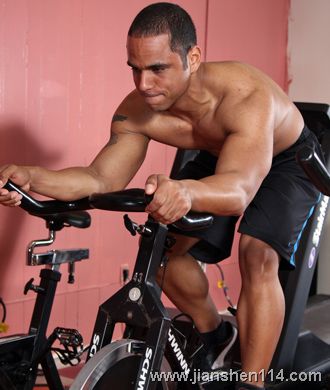
Many people have had this experience when they are running: during exercise, a certain part of the body suddenly has a severe pain. This pain usually occurs in the lower abdomen on the left or right side of the chest. Most runners have suffered from this pain, they have to slow down and start walking until the body returns to normal.
  Have you tried running your suffocation?
Nowadays, researchers have given this pain a very academic name called "sports-induced short-term pain in the lower abdomen" (ETAP). In the folk, we often call it "helium." Well, we can leave it alone regardless of its scientific name. It is known that this symptom can greatly affect the performance of athletes, especially swimmers and runners, and affect their athletic performance.
What caused the suffocation?
At present, there is still no clear conclusion on the causes of radon in the medical community, but a number of persuasive theories have emerged. Most of the scientists hold the view that the production of hernia is related to our diet before exercise.
Some studies have shown that people have the most suffocation when swimming and running. Hernia usually occurs in the unilateral lower abdomen and leads to poor athlete performance. Even if you are not an athlete, the experimental results also show that the occurrence of hernia is not related to the athlete's gender and body mass index (BMI). But young people seem to be more susceptible to suffocation.
The most closely related factors known to be related to hernia are the type of diet before eating and the time of eating. A study has shown that drinking high-sugar and hypertonic beverages before and during exercise can cause hernias to occur, especially for people who are often troubled by them. How much food was eaten before exercise seems to have nothing to do with the occurrence of hernia.
Another complicating explanation is this: the repeated stretching of the ligament between the diaphragm and the internal organs (especially the liver) during exercise is the cause of the hernia problem. The difference in breathing patterns has led to this problem. People usually change their breath every two or four steps while running. In general, most people exhale when they step on their left foot, but a few people exhale when they step out on their right foot. Since the liver is located below the right side of the chest, if the right foot is exhaled while exhaling, the diaphragm will move up and the liver will fall due to the right foot. Repeated stretching of the ligament causes paralysis of the diaphragm, resulting in the occurrence of hernia.
  What should I do if I am angry?
If you are suffocating while running, stop running immediately and put your hand on the right abdomen, as the frequency of breathing is paralyzed. Please take as deep a breath as possible during running or swimming. The theory of "ligament stretching" tends to think that short breathing will increase the chance of hernias. This is because the diaphragm is only slightly rising and falling during each breath. The ligaments are always in a state of tension and cannot be relaxed. It is easier to happen.
In addition to these, we have some suggestions to help you stay away from suffocation:
Plan your eating time before exercise to make sure that the food is mostly digested during exercise – that is, don't exercise immediately after meals.
Avoid drinking beverages that contain higher sugar or high osmotic pressure before or during exercise.
Full stretching before exercise helps reduce the chance of hernia. You can do this: raise your right hand and tilt it as far as possible to the left, hold it for 30 seconds, relax, and then move it to the right with the left hand.
Please slow down the rhythm of the movement until it subsides.
You can try to massage the area of ​​the hernia and let the body lean forward so that the diaphragm can be stretched as much as possible, which helps relieve pain.
Of course, the most important thing is, if you are often troubled by this type of pain, please consult your doctor immediately.
Â
Stainless Steel Casters,Medium Duty Stainless Steel Casters,Medium Stainless Steel Pp Rigid Casters,Stainless Steel White Pp Rigid Casters
L & T Co. Ltd , https://www.lntsco.com
![<?echo $_SERVER['SERVER_NAME'];?>](/template/twentyseventeen/skin/images/header.jpg)